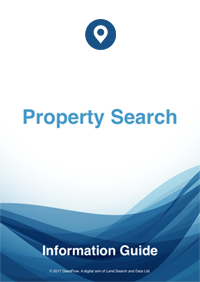Ground Rents and Who Owns Them
Contents
Article Summary
With the annual rent being a small amount many ground rent and rent charge owners do not ask for the rent each year, and their identity is unknown to the leaseholder of the property. There is, however, a need to identify the owner of the ground rent, as when the property is sold the purchaser's solicitors will wish to ensure there are no ground rent arrears that their clients may find themselves liable for following the purchase.
Ground Rents, Rent Charges and Chief Rents
Rent Charges and Chief Rents are both the same creature, different names to describe the same thing. Custom and usage have resulted in the different names being used as terms to describe annual payments of rent in respect of a freehold property. These charges are generally made annually and can differ widely in amount. Since the Rentcharges Act 1977 new rent charges can no longer be made.
Ground Rents are similar to Rent Charges but they only apply to Leasehold properties. Again, the amounts charged differ widely and can be as low as the payment of one peppercorn. Unlike Rent Charges, Ground Rents cannot be bought out.
Peppercorn
A peppercorn rent is the annual payment of a peppercorn. In law this would satisfy the requirement of Consideration, i.e. a payment in return for the granting of a lease, Consideration being one of the fundamental requirements needed to comprise a legal contract. In practice the peppercorn is not paid.
Apportionment of Rent Charges
It is often the case that a rent charge will have been applied to a development where the properties were sold over a long period of time. It would be unfair to charge the full annual rent to one property owner only, so where this occurs the annual rent is apportioned between all the properties, so that as each is sold off they will each bear their relative proportion of the rent.
To give legal effect to this a Deed of Apportionment is created, so that the respective properties and annual rents can be ascertained with ease. It may be the case that a property on which a rent charge is registered will be obliged to collect the rent charges raised on other properties that were formerly in the same ownership, and forward them to the rent charge owner.
Freeholder
With the annual rent being a small amount many ground rent and rent charge owners do not ask for the rent each year, and their identity is unknown to the leaseholder of the property. There is, however, a need to identify the owner of the ground rent, as when the property is sold the purchaser's solicitors will wish to ensure there are no ground rent arrears that their clients may find themselves liable for following the the purchase.
Due to the operation of the Limitation Act the freeholder or rent charge owner can only legally recover the maximum of 6 years arrears of ground rent, and so, if the freeholder cannot be identified, the purchaser's solicitors will require a sum equivalent to 6 years rent to be paid by the vendor to the purchaser, to compensate for any future claim.
Identifying the Freeholder or Rent Charge Owner
Failure to pay a ground rent may result in the forfeiture of the leaseholder's property, which is certainly a considerable motive to identify the freeholder.
As most properties are now registered it is usually possible to identify the freeholder or rent charge owner without too much trouble. This is done by obtaining either a copy of the Freehold Title Register, which provides, in its A section, the name and address of the current freeholder, or else the Title Register for the Rent Charge, which will have been given its own Title.
Rent Charges (or Ground Rents) Pack
We offer a bundle of searches that provide all the information you may need to identify a Freeholder or a Rent Charge Owner, and which you will need should you wish to buy out a Rentcharge (you cannot buy out a ground rent).
The documents included, in the case of a Rent Charge, are:
- Rent Charge Title Register
- Deed creating the Rent Charge
- Deed of Apportionment
And for a Ground Rent:
- Freehold Title Register (or superior leasehold title register)
- Lease
Title Register
The Land Registry Title Register holds data relating to the property ownership, purchase price, mortgage, tenure, covenants, rights of way, leases and class of title.
£19.95Lease & Lease Plans
The Lease and its Lease Plan usually form one document and are both provided for the one fee. They are very useful in resolving disputes, particularly with car parking and other shared areas.
£19.95Associated Documents
Deeds creating Restrictions, Covenants, Easements, etc. are often kept digitally by the Land Registry and made available for sale due to their invaluable detail and content to assist in further understanding the Restrictions, etc.
£29.95


